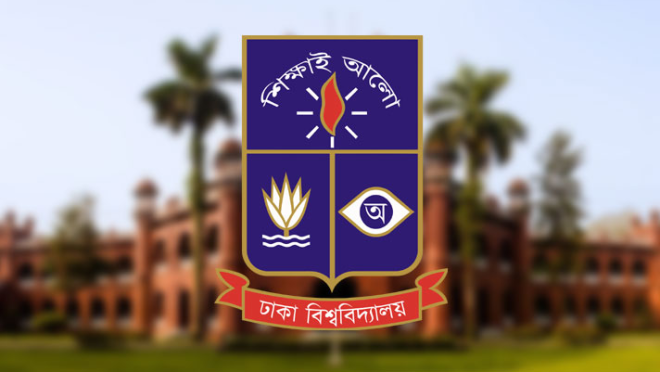A Guide to Excel the Executive MBA Admission test of University of Dhaka
A Guide to Excel the Executive MBA Admission test of University of Dhaka

The admissions test in Bangladesh is not just an admissions test; it’s more than that. Students call it an admission war because every year many students sit for the admission test to ensure their admission to their dream university, but only a few of them win the war to reach the premises of their dream university.
Speaking of the admission test, when the admission test is about the University of Dhaka, considered as the Oxford of the East, things become different, as one the most highly competitive admission tests of the country and the dream university of most of the aspirant, only a small percentage get into it despite having all the preparations and potentials.
The admission tests are a now-or-never opportunity because there are only one or maximum two chances for a student to take the test, and if a student can’t pass the admission examination then there’s no alternate option to get into the desired university.
However, the Executive MBA Programme from the Faculty of Business Studies (FBS) of the University of Dhaka might be a great chance for getting into the nation’s one of the best business schools with a flexible structure.
Though it’s named as Executive MBA Programme for the executives, a fresh graduate can enroll here too, which is for sure an amazing opportunity for them to meet with the professionals to get to know about the professional world, build a network, and also gain the academic experience of the FBS.
Before jumping to the admission test guideline, follow this link to have a closer look on some of the important factors that are important to know before applying to this programme: https://www.fbs-du.com/admission/index.php?act=apply/Eligibility
MCQ part
Tips for English: At first, it’s good to solve the previous year questions to get an insight of the question pattern. Then work on these following types of items for getting a suitable preparation on English part:
- Reading Comprehension
- Appropriate Preposition
- Fill in the blanks
- Analogy
- Synonyms/ Antonyms
- Sentence Correction.
Tips for Math: Since there is no option for using a calculator in the exam hall, it’s a must to find out how to solve the mathematical equation without using a calculator and get to know how to solve the maths within a short time as there’s limited time for the exam.
Practising on these types of items would be fair enough to get a good mark in the maths part
- Function
- Simple and compound interest
- Ratio
- Age calculation
- Profit & loss problem.
- Speed and distance.
- Exponents
- Basic algebra.
- Basic geometry
Tips for Logical Reasoning: Practising from the previous questions and from online resources for logical reasoning is enough to gain a proper understanding of this part.
Tips for General Knowledge: There’s no specified topic for general knowledge. However, knowing the recent news, trends, and business related information, local and international affairs would be worthwhile to obtain good marks here. Reading current affairs books would be the best suggestions for this part of the exam.
Writing Ability Part
The writing part mostly has these following types of questions:
Translation: (English to Bagala and Bangla to English)
Précis Writing: It’s basically short paragraph writing. In the question a short article will be given, you have to give an appropriate theme and summarise it within a few words.
Writing Short Notes: Mostly business related topics like: Fintech, Eco-tourism, Digital Banking, VAT, Bank Rate, Inflation etc will be given here.
Essay/Paragraph: There is no particular suggestion for this one but knowing the recent stuff, business related information would be beneficial for this part.
Reading English newspaper, magazines, practising free handwriting is the best way to improvise in this section to get a good mark.
In conclusion, the most important thing to excel in the admission test is diligent practice and strategic preparation. By following this guideline and taking the proper preparation an aspirant can ensure the admission here. Matter of fact is, the Executive MBA Programme is not only for academic growth but also facilitates networking opportunities and exposure to real-world professionals which enables a great opportunity to embark on personal and professional development.


